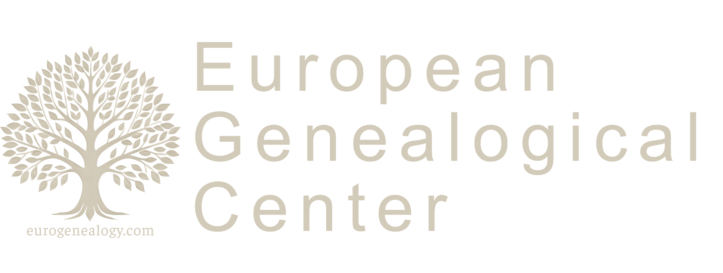Genealogical research in Poland — tracing Polish roots
Discover your ancestry dating back to the 17th century
Search for archival documents in Poland and confirmation of nationality
Genealogical research in Poland provides the opportunity to learn your family history, restore family connections, confirm origins, and understand the historical context in which your ancestors lived. Poland has a rich history closely connected with Prussia, Austria-Hungary, and Russia, so genealogical research often leads to surprising discoveries. Our genealogical center offers a wide range of services for reconstructing family histories, analyzing archival documents, and creating family trees. Polish genealogical sources cover the period from the seventeenth century to the present day. For noble families, the lineage can sometimes be traced back to the fifteenth century. Extensive archival materials are available for genealogical research in Poland. We work with church records, population censuses, court and personal files, and many other genealogical sources. These documents help establish dates of birth, marriage, and death, provide information about occupations, residences, and the social status of relatives.
Many clients turn to us for confirmation of Polish origin and obtaining the Polish Card. We assist in collecting archival documents necessary for residence permits, conduct thorough archival research, and obtain official certificates. We also help restore lost documents needed to confirm nationality and create family books that include detailed genealogical research, family stories, photographs, and copies of original documents. Researching roots in Poland requires careful attention, extensive expertise, and knowledge of the historical characteristics of the region. Our experts work in central and regional archives, using modern technologies alongside traditional research methods to help you learn about your ancestors and accurately reconstruct your family tree. If you wish to order genealogical research, we are fully prepared to help you locate ancestors in archives, create a complete family tree, and preserve your family heritage for future generations.
Sources of genealogical research in Poland
One of the most important sources of genealogical information is parish registers, which recorded births, marriages, and deaths. These documents were meticulously maintained in Catholic churches, Lutheran kirks, Orthodox churches, and Jewish synagogues, reflecting the religious and cultural diversity of the region. In different periods and regions of present-day Poland, records were kept in Latin, Polish, Russian, German, and Hebrew (for Jewish communities). The Polish nobility, or szlachta, holds a special place in the country’s history, and sources related to their genealogy are truly unique. Detailed biographical descriptions and family registers, sometimes extending back several centuries, allow descendants to connect with their family history and feel a strong link to important historical events. A commonly requested service at the European Genealogical Center is confirmation of Polish nationality, as parish records and personal documents of relatives enable descendants of Poles to obtain legal Polish residence through the Polish Card, ensuring both historical accuracy and legal verification.


In addition, our specialists actively research and thoroughly analyze other valuable historical materials that help reveal the biographies of people from past centuries more comprehensively, providing a fuller understanding of family histories and social contexts. Key and reliable sources include nineteenth- and twentieth-century personal files containing detailed information about education, employment, and official service records, offering important insight into the lives and careers of ancestors. Local population censuses, conducted in both cities and rural areas, are highly significant, as they include detailed household lists showing family relationships, ages, and social status; in the Kingdom of Poland from the mid-nineteenth century until 1914, such lists were maintained exclusively in Russian, while military records, property inventories, land plans, and maps provide additional layers of important information. Together, these documents allow researchers to study the everyday lives of ancestors in depth, restore the atmosphere of their era, trace the marks they left on history, and reconstruct complex family connections across multiple generations.
Neighboring countries where we conduct research
Examples of our research
Below you can review examples of research reports received by our customers:
Prices for genealogical services in Poland
You can find a detailed price list and description of all services of European Genealogical Center here
Prices for genealogical services in Poland
Genealogical research
From €1000
Tracing family history back to the 17th century
Biographical search
From €500 to €2000
Establishing the life story of an individual and their close relatives
Nationality confirmation
From €400 to €1500
Identifying details about a person’s ethnic origin
Document search
From €100 to €1000
Obtaining certificates, parish registers, and civil registry records
Family history book
From €2500
Creating a unique publication describing the genus history
Family history website
From €2000
Development of a personal website dedicated to your family’s history
Submit a request, and we will contact you shortly
You can also reach us directly by sending an email to: european.genealogical.center@gmail.com or writing to us in Telegram

european.genealogical.center@gmail.com
© 2025
All rights reserved
All rights reserved
Contact us:

